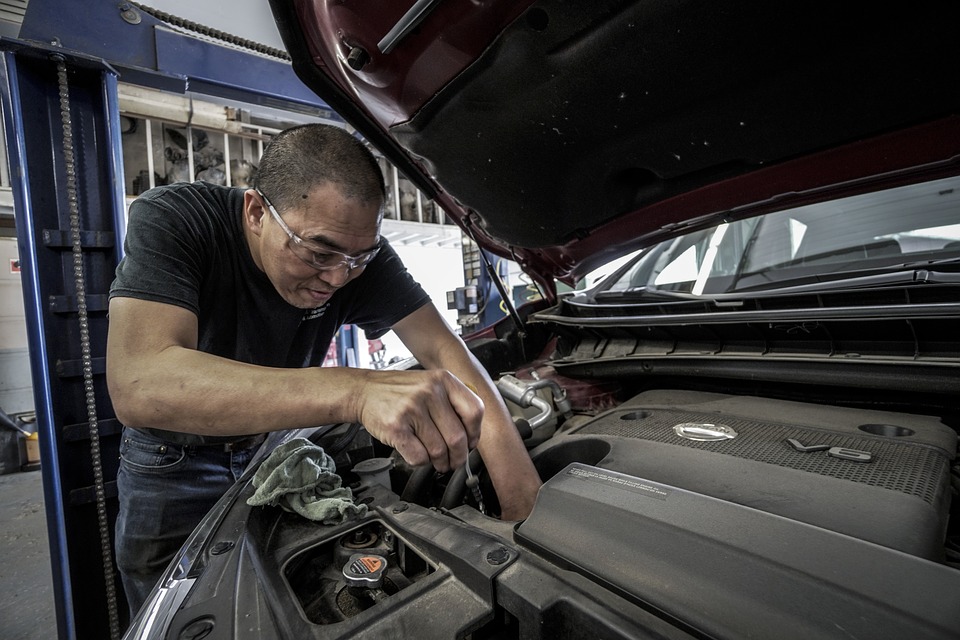Key Takeaways
- Regular maintenance can extend your vehicle’s life and performance.
- Understanding vehicle basics helps in taking timely actions to prevent major issues.
- Timely troubleshooting prevents costly repairs.
- Using quality parts and products ensures efficiency and reliability.
The Importance of Vehicle Maintenance
Regular maintenance is the secret to the longevity and peak performance of your vehicle. Ignoring it is akin to skipping medical check-ups, which can lead to severe health complications. For car owners looking to ensure their vehicle’s extended service, it’s essential to prioritize regular check-ups. If you’re assessing options for reliable car dealerships in Lakeland, FL, these establishments can offer professional insights and services in maintaining your vehicle. Routine maintenance involves a series of checks and balances that, when performed regularly, can identify potential issues before they escalate into serious problems.
Car dealerships in Lakeland, FL, often provide comprehensive maintenance services to ensure vehicles run smoothly and efficiently. Many of these dealerships offer specialized care, utilizing manufacturer-recommended parts and trained technicians to keep cars in top condition. Regular maintenance packages and seasonal promotions are common, making it convenient for local drivers to stay on top of their vehicle’s needs. This is essential, especially for those who just purchased new cars for sale Tampa.
Taking the advice of the National Institute for Occupational Safety and Health, it’s clear that proactive maintenance minimizes costs and significantly uplifts vehicular safety. Without timely intervention, minor mechanical issues can spiral into costly repairs. Preventive maintenance not only saves on expensive repairs but also ensures the vehicle operates efficiently and safely, reducing the likelihood of accidents.
Basic Engine Care
The engine is the heartbeat of your car, and like any system under constant use, it needs care. Regular oil changes stand at the forefront of essential engine maintenance. Fresh oil reduces friction and cools engine components while improving fuel efficiency. Neglecting oil changes can result in overheating, engine wear, and, in extreme situations, total engine failure. Beyond oil, owners need to check the cleanliness of their engines. Dirt, debris, and undetected leaks can significantly affect performance. By understanding and practicing fundamental engine care, owners can circumvent significant mechanical failures and extend the shelf life of their vehicles.
Brake and Tire Checks
Brakes and tires are two of the most critical safety components of any vehicle. Their performance directly impacts driver safety. Brake pads, when worn down, reduce brake efficiency, risking road safety. Regular inspections, approximately every six months, ensure brakes remain responsive and effective. Tires, meanwhile, require monthly checks for tread depth, air pressure, and general condition. Worn or improperly inflated tires can be dangerous, leading to reduced traction and steering control. Properly maintained tires ensure optimal fuel consumption and safety, reducing the risks of blowouts and skidding.
Monitoring Fluid Levels and Regular Changes
Fluids in a vehicle serve as its lifeblood, with each type playing a crucial role in the car’s overall function. Oil, coolant, brake fluid, transmission fluid, and more remain critical for the car to function smoothly. Oil, for instance, ensures proper lubrication of engine parts, while coolant prevents overheating by maintaining the right temperature. Regular checks, ideally monthly, can prevent many mechanical problems. For example, inadequate coolant levels could lead to engine overheating and damaging components. It’s not just about quantity; quality matters, too. Regularly replacing these fluids prevents the build-up of contaminants that can affect the car’s performance.
Ensuring Battery Health
The car battery powers everything from the starter motor to the GPS system and air conditioning. Regular maintenance can mean the difference between getting where you’re going and being stranded. Unexpected malfunctions can be prevented by making sure the connections are tight and the battery terminals are clean. Extreme temperatures can tax a car battery, making regular checks even more crucial in cold winters or hot summers. Keep an emergency set of jumper cables in the trunk as a last-resort backup.
Keeping Your Car Clean Inside and Out
A clean car isn’t just about aesthetics; it also enhances your vehicle’s life. Dirt, grime, and salt can eat away at the exterior, while debris inside can damage upholstery and components. Regular washing removes these threats, while waxing adds a protective layer against harmful ultraviolet rays and other environmental stresses. Inside, maintaining cleanliness prevents mold growth, allergens, and unpleasant odors. Keeping your car spotless enhances your driving experience and preserves the vehicle’s market value.
Regular Safety Inspections
Routine safety inspections serve as comprehensive exams for all of your vehicle systems. They involve checking light functions, suspension integrity, and other critical systems to ensure they are operational. The importance of such inspections is emphasized by the National Highway Traffic Safety Administration, which emphasizes that safety inspections are essential to maintaining safety both on the road and within the vehicle. These inspections are not merely procedural; they are vital for upholding safety standards and ensuring peace of mind on every journey.
Choosing Quality Parts and Products
When it comes to parts and products used in your vehicle’s maintenance, quality matters. Why compromise on essential components when OEM parts offer the perfect fit and functionality? Unlike cheaper aftermarket alternatives, OEM parts are designed specifically for your vehicle, ensuring compatibility and longevity. They might be more expensive upfront, but they save money by preventing premature failure and wear. Investing in quality ensures that the vehicle performs optimally and safely, reducing long-term costs and enhancing the driving experience.







